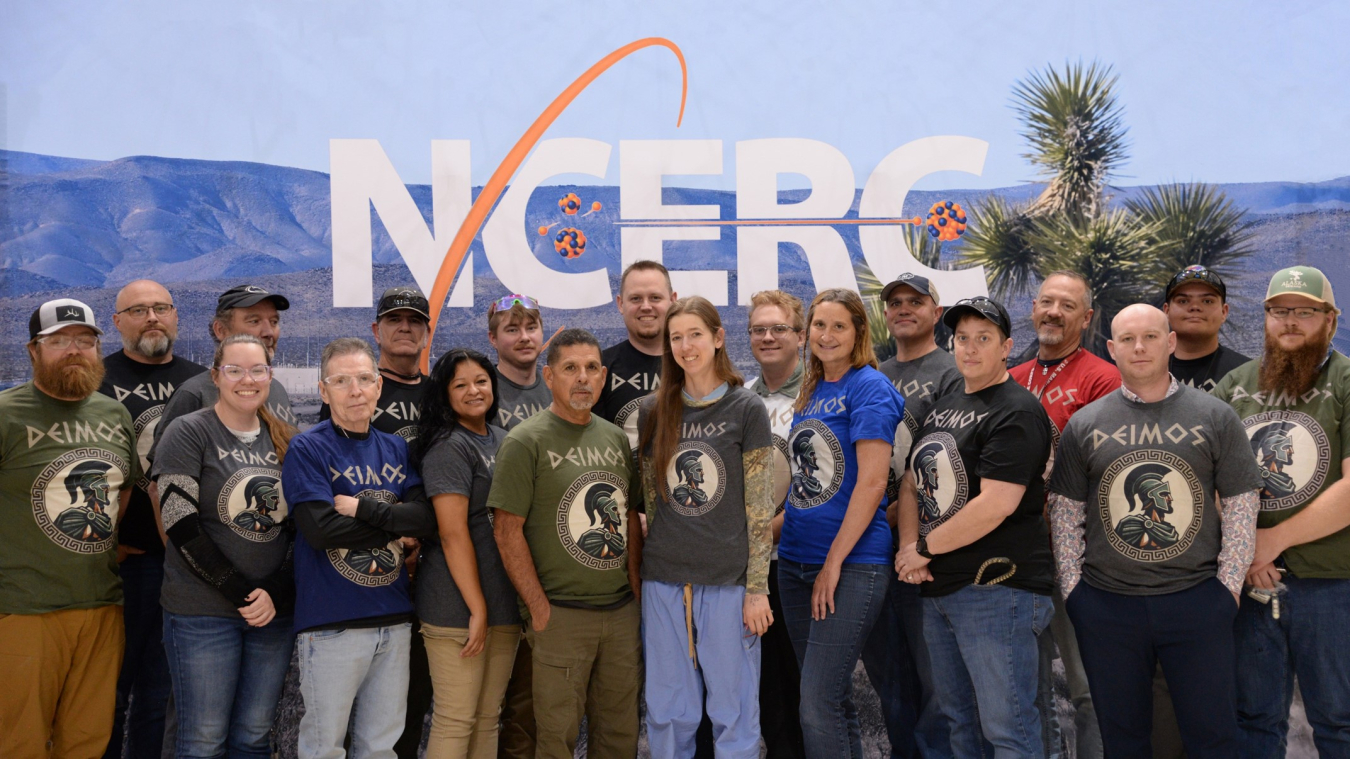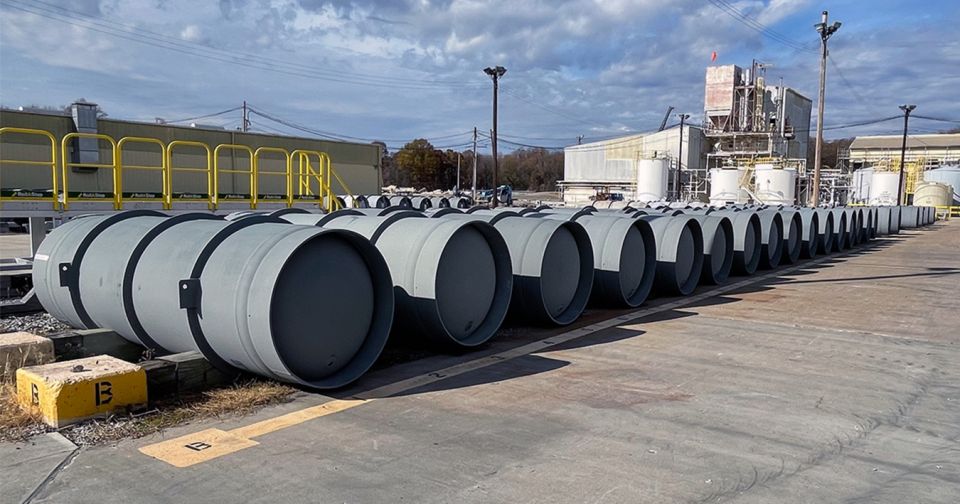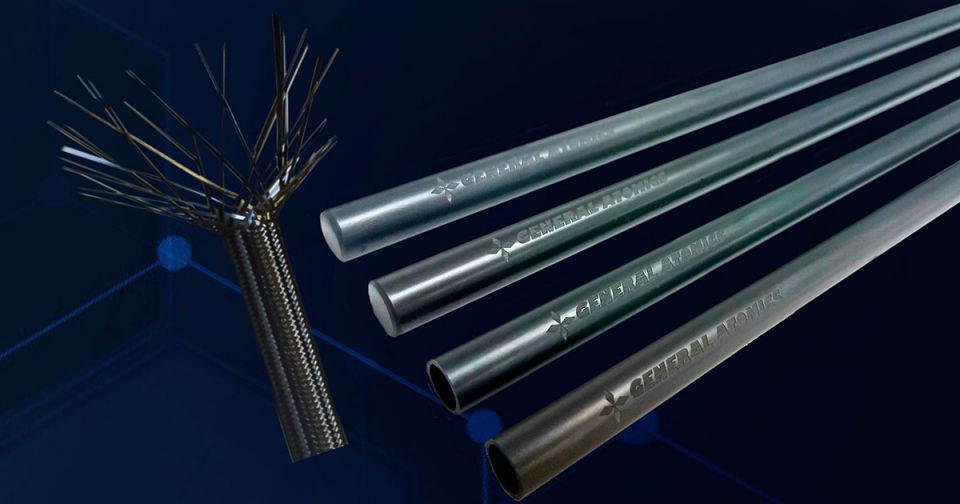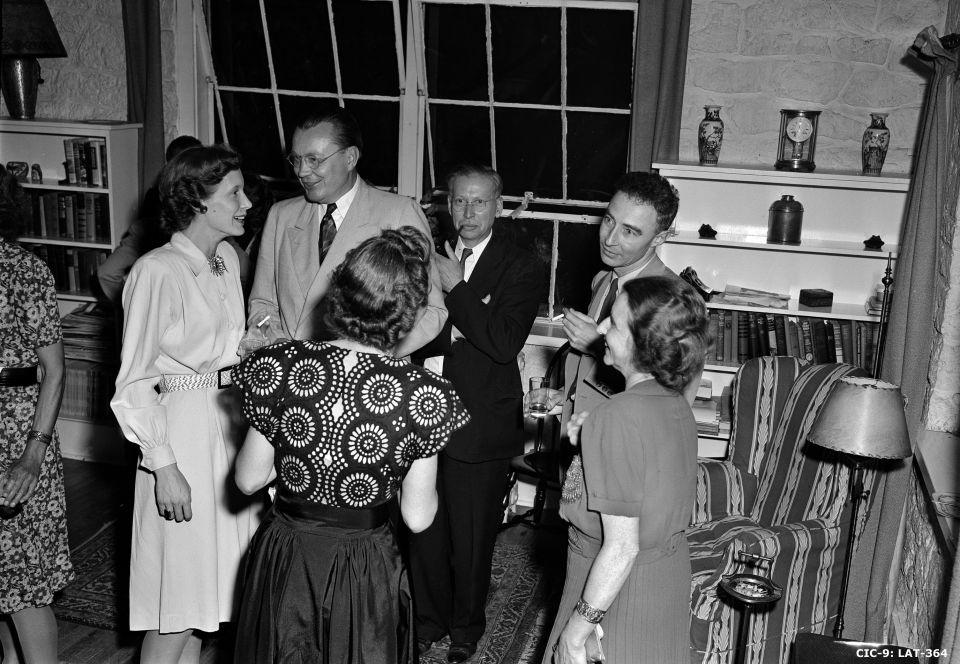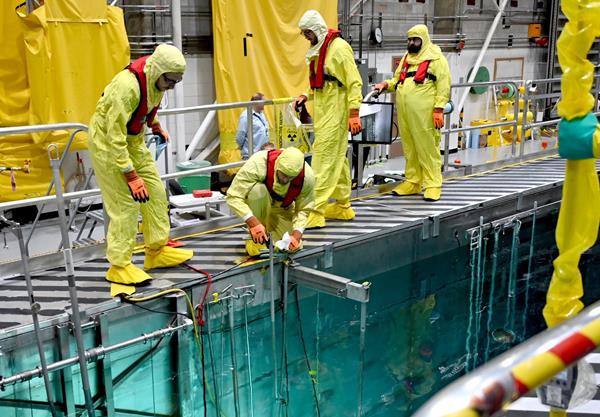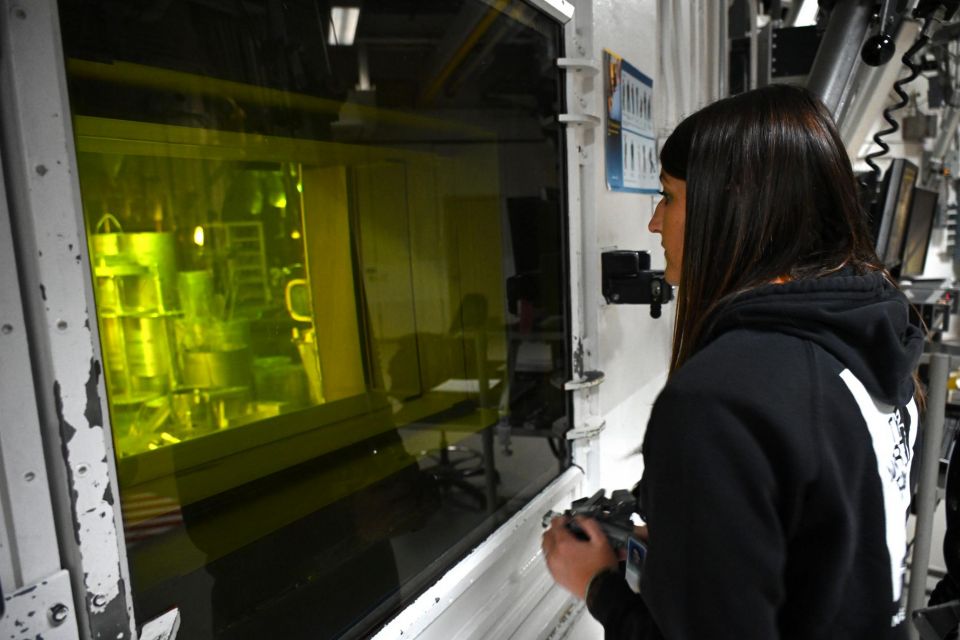A subset of the Deimos experiment team. (Photo: LANL)
Los Alamos National Laboratory researchers have performed a critical experiment using high-assay low-enriched uranium (HALEU) TRISO fuel. It is the nation’s first criticality safety experiment using HALEU fuel in more than 20 years. On November 21, LANL announced the work of its Deimos team, which earlier this year carried out an experiment at the National Criticality Experiments Research Center (NCERC), operated by LANL at the Nevada National Security Site.
The Deimos experiment ties into a larger effort between the Department of Energy and the Nuclear Regulatory Commission to gather new design- and safety-related data on the use, storage, and transportation of HALEU. There are very few benchmarks for HALEU—enriched to between 5 and 20 percent uranium-235—and Deimos will help the nuclear industry fill that gap to support licensing of the HALEU infrastructure that many advanced reactor demonstrations and deployments would require.
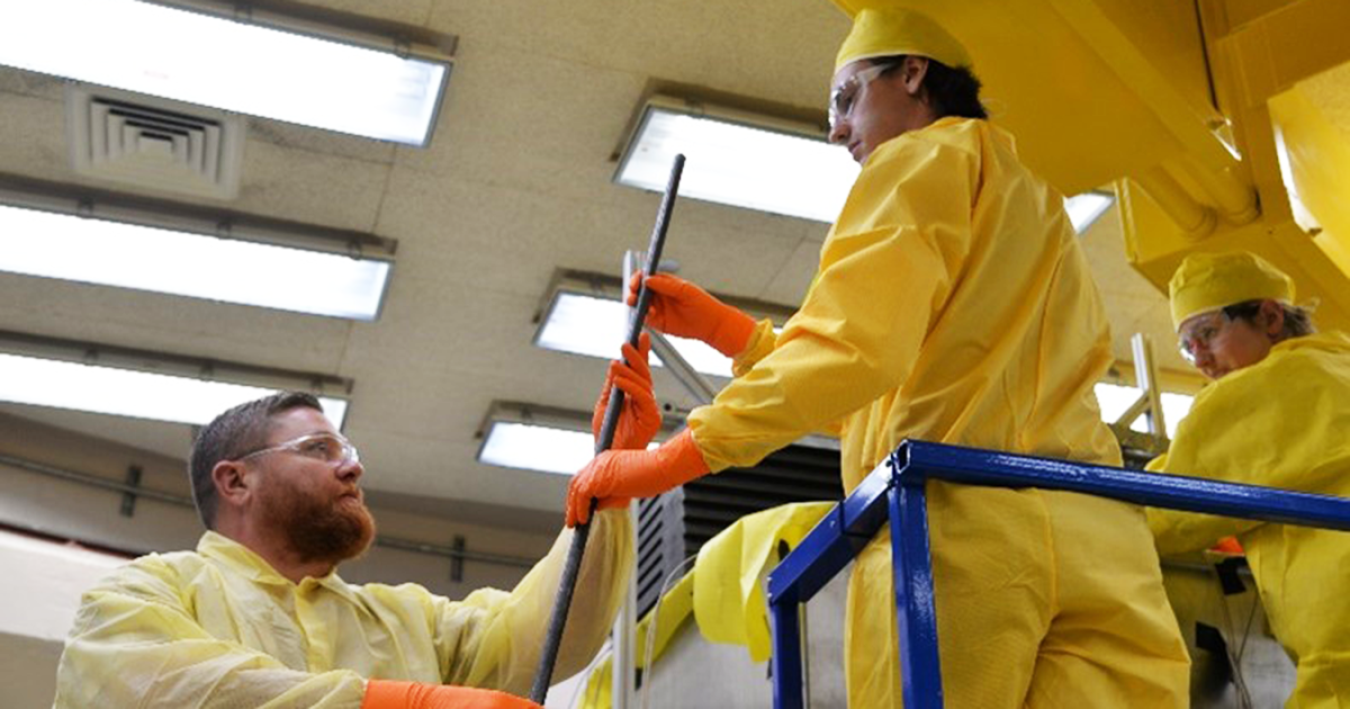
A graphite fuel “cup” containing fuel pellets ready for insertion into a Deimos graphite monolith. (Photo: LANL)
What Deimos did: LANL researchers have described Deimos as a HALEU-fueled and graphite-moderated advanced reactor test bed. At NCERC, researchers adapted a critical assembly machine to accommodate a new graphite core with “cups” to hold HALEU-based fuel pellets containing TRISO particles.
After demonstrating criticality, the experiment was measured at room temperature and heated to more than 200°F to generate new criticality safety data on HALEU fuel for the first time in the United States in more than 20 years.
“The Deimos experiment is an important step toward deploying HALEU-fueled nuclear reactors,” said LANL program manager for nuclear energy Chris Stanek. “We are excited and proud to make use of unique LANL capabilities to advance the nation’s advanced reactor goals, and we look forward to future experiments that Deimos enables.”
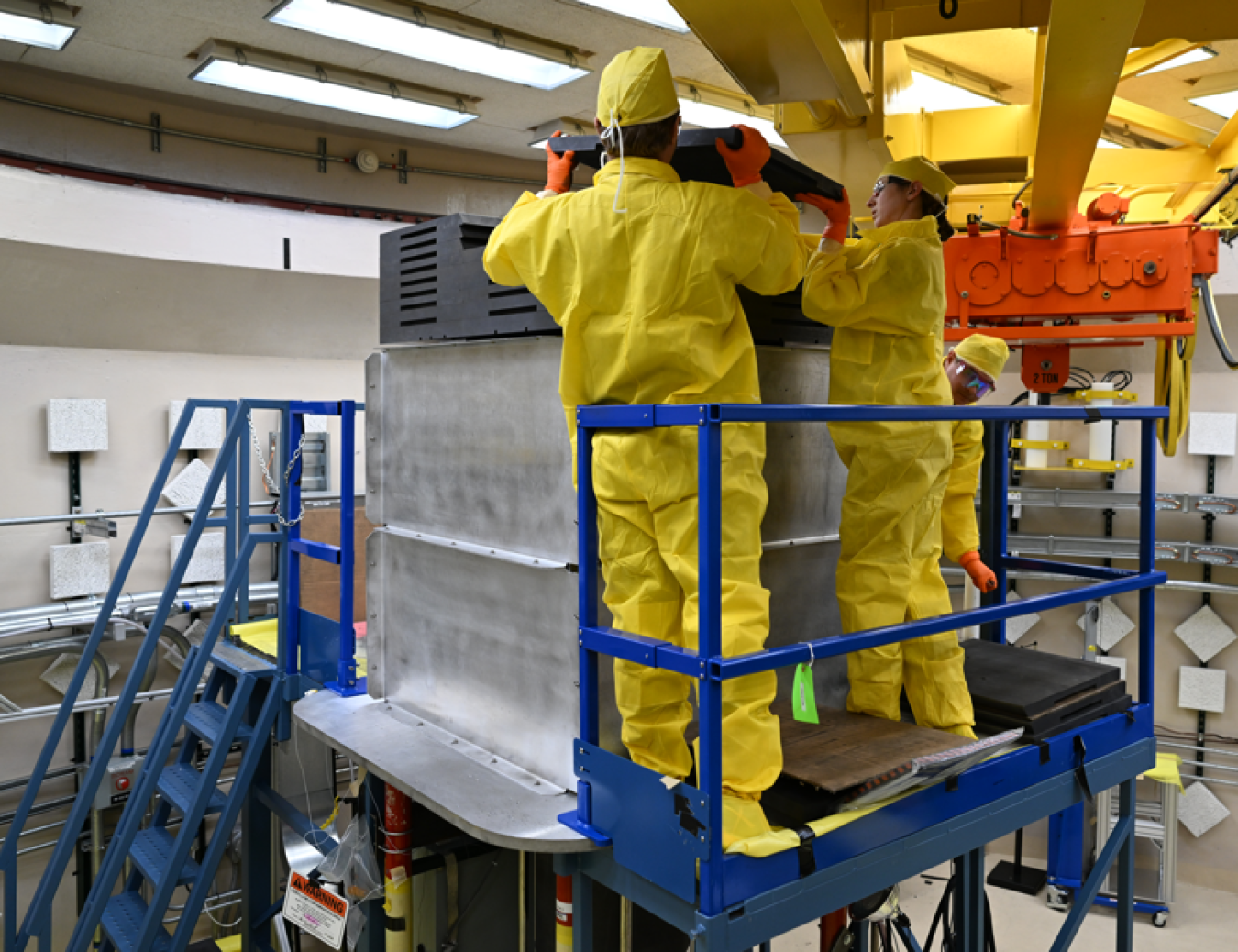
The Deimos experiment being assembled. (Photo: LANL)
Part of a broader effort: The Deimos criticality demonstration was funded by LANL’s Laboratory Directed Research and Development program and supports criticality benchmarking work currently underway through DOE’s HALEU Availability Program. The Inflation Reduction Act of 2022 provided $700 million to the HALEU Availability Program, with up to $60 million for HALEU criticality benchmarking.
After issuing a call for proposals (the first of three planned calls), the DOE awarded $17 million to 16 laboratory-led projects in August through the DOE/NRC Collaboration for Criticality Safety Support for Commercial-Scale HALEU for Fuel Cycles and Transportation (DNCSH) to help develop public data and criticality benchmarks. Project teams include six national laboratories taking lead roles in partnership with other labs, universities, and multiple industry partners.
The DNSCH project is performed in collaboration with the National Nuclear Safety Administration’s Nuclear Criticality Safety Program and the Office of Science Nuclear Physics National Nuclear Data Program. DNSCH anticipates releasing a second proposal call for experiment and analysis work packages in early 2025.
